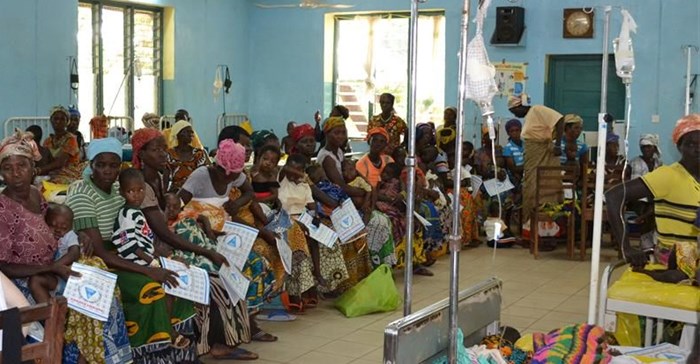Concerns raised by the Hospital Association of SA (Hasa) over contradictions in the National Health Insurance (NHI) and the Medical Schemes Amendment that could lead to potential job losses has raised the ire of the national health minister.

Photo: Kempton Express
The organisation has been accused of "fear-mongering" and attempting to sabotage the implementation of NHI by Health Minister, Aaron Motsoaledi,, but Hasa chairperson Melanie da Costa provides two scenarios to demonstrate the economic effects of two different policy paths.
Two scenarios
In the first scenario, which combines the provisions of the two bills and assumes government would not purchase any private hospital services under the NHI, Hasa estimates 9, 600 jobs would be lost in the private sector and R31bn shed from South Africa's GDP.
The second scenario includes the effects of price regulation, with a proposed cap on prices at levels 23% lower than they are at present. Under this scenario, 13, 000 jobs would be lost. Apart from job losses in the private hospital sector, implementing the NHI is fiscally unaffordable and comes at a time when the country is struggling to keep the lights on and the wheels of the economy spinning. We estimate that NHI will cost taxpayers R446.8bn in 2018 prices.
“Considering that the total revenue from personal income tax collections – the main vehicle for financing NHI - amounted to R462.9bn in 2017, the futility of the government's ambitious NHI scheme confronts us. South Africa has a very narrow tax base and it would be extremely unwise for government to even consider imposing another tax on already overburdened taxpayers to fund the NHI rather than trying to get more people actively involved in the workforce.
Since the main funding option for the NHI scheme will necessarily come from a surcharge on taxable income and a payroll tax, the NHI is nothing but a tax on labour. A payroll tax will always, ultimately, be borne by workers, either through reduced earnings or compensation or job losses - precisely the opposite of what the poor in South Africa require.
“While the NHI scheme is supposed to help people access medical care, instead it would undermine their chances of economic success by either cutting their wages or eliminating their jobs altogether,” she says.
Potential to wreck the economy
In short, adopting the proposed NHI has the potential to wreck South Africa's already weak economy. To compound matters, in his State of the Nation Address, President Cyril Ramaphosa said the NHI Bill would soon be ready for submission to Parliament.
However, the NHI Bill has been surrounded by controversy ever since the National Treasury revealed that the President's advisor, Dr Olive Shisana, attempted to introduce draconian changes to the proposed bills after the public comment period had closed that would have all but destroyed the private healthcare sector in South Africa. Despite millions of taxpayer rands having been spent on the NHI, including the catastrophic failure of the NHI pilots, South Africans are no closer to understanding any of the material details of the plan. Yet, the government is surging ahead. Indeed, critical details such as how much the scheme will cost, where the money to pay for it will come from,
and where the country will obtain the additional personnel (both medical and bureaucratic) to staff the ambitious scheme are all sorely lacking.
Absence of critical details
Given the conspicuous absence of these and other critical details we can only assume that the government's NHI scheme is a politically motivated event that will not improve the health outcomes of the poorest and most vulnerable members of society. We are reminded of the quote by Paul Starr: "Whoever provides medical care or pays the costs of illness stands to gain the gratitude and goodwill of the sick and their families... Political leaders since Bismarck seeking to strengthen the state or to advance their own or their party's interests have used insurance against the costs of sickness as a means of turning benevolence to power."
When one considers the high levels of poverty and unemployment, the small tax base, and the poor performance of the public health sector, it is difficult to envision how a government-funded system that promises "free healthcare for all" is appropriate for South Africa.
The consequences of the government adopting its proposed NHI policy are entirely predictable. It would reduce the quantity and quality of South African healthcare provision; drive more healthcare professionals out of the country; create a bureaucracy incapable of efficiently handling the huge
volume of claims; impose an unnecessary and intolerable burden on both government and taxpayers; and cause job losses.

































